OPINION: How about we ban banning?
There has never been a time in America – for as long as I can remember – when there have been more calls or demands for placing a ban on someone or something. Some people feel so powerfully about the object or person that they don’t even want anyone else to see or hear it – whether that person cares or not.
We could get bogged down for pages on the mentality or psychology behind it and mention a whole range of well-meaning intentions (protecting children being the most popular) and bad ones like not liking someone, having hurt feelings, not want to hear other opinions or even narcissistic based reasons. That’s beyond the scope of this article and draws in a sense of subjectivity to which will likely be objected.
Instead, let’s use a more scientific approach. Let’s look at what happens when something is banned. Let’s say that everyone was in agreement about something – society, in general, said “This is bad. It needs to disappear – let’s ban it.” It wasn’t a small segment of the population or a limited few, but most.
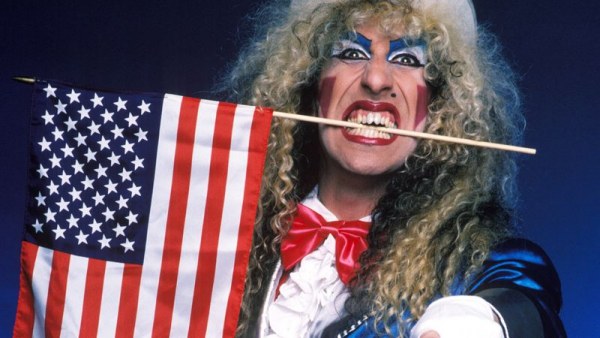
Would a ban work because the vast majority wanted it? When has banning something been effective or so effective that the hated object or person was made to disappear and be a problem no longer? History has shown that banning something can have no effect or even just backfire and have to opposite effect. That’s not to say that bans can’t work – history has shown that they can absolutely work – it’s just that there has to be a desire by most of the population to put the ban in place and very little dissent or organized resistance.
Let’s take a little stroll down history lane.
National Prohibition
As most Americans know, the most famous case of banning something was the ratification of the 18th Amendment in 1919 that created the National Prohibition on alcohol. The movement led by a very large portion of women in America spearheaded by groups like the Woman’s Christian Temperance Union who felt that it would “…protect families, women, and children from the effects of alcohol abuse.” As a whole, the proponents felt that it would in the best interest of society to do away with alcohol and with it public drunkenness, mental illness, physical altercations and other crimes, even poverty.
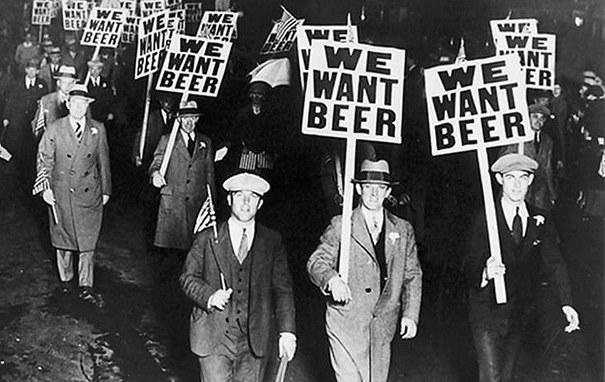
Now, if you think I’m going down the road that declares “Prohibition was repealed, therefore the ban didn’t work – but it would have.” you’d be wrong. What it does show is that when you ban something you alienate an unknown number of people that don’t want the ban and they will make it known. The prohibition did initially work and the well-meaning women that helped make the amendment happen turned out to be right: state mental health hospital admissions, cirrhosis (disease of the liver) death, and public drunkenness rates dropped. When the repeal was enacted, those rates went right back up.
That’s pretty impressive, especially considering that estimates were that 30-50% of Americans followed the alcohol ban. That means the other half of the country did not care what the law was and wanted access to their booze. What sprung up were a different set of laws to be broken and arrests in many other areas – an exchange of one set of crimes for a different set. In addition, an entire sub-culture sprung out of the ban: speakeasies, a rise in organized crime, bootlegging, and rum runners. Criminal activity simply went underground, or…er…behind closed doors or in backyards.
Sadly, the other unintended effect was that it led to the death of many aspects of Americana including the saloon, for example. As happens with anything that becomes taboo, e.g. tattoos, piercings, genres of music, etc. it attracted a segment of the population that wanted to attach themselves to the taboo. This sentiment entered popular culture in movies, music, and books. As stated in the US National Library of Medicine’s National Institutes of Health database “Prohibition was transformed from progressive reform to an emblem of a suffocating status quo.” The Anti-Saloon League, one of the organizations that promoted zero tolerance and wanted law enforcement to use a heavy hand on alcohol users and bootleggers was compared to the Ku Klux Clan by those against the ban. *
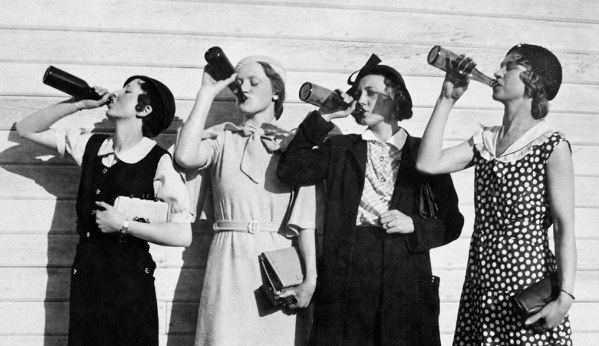
Believe it or not, one of the largest groups of “new drinkers” – those that picked up the taboo once it was made taboo – were from the very demographic that helped get the prohibition enacted: women. The death of the saloon was a blow to macho-ism and emboldened women so much so, that women considered it a badge of feminine strength to be seen in public as thumbing their noses at “John Law.” Remember, this was an era when women weren’t allowed to have many jobs and a police department was a men’s club. Now, one of the groups that helped make Prohibition happen were opposing it, but they were now one of the scores of organizations and groups actively opposing the prohibition and demanding the Amendment be repealed.
With such a large portion of the population actively breaking the laws by either manufacturing alcohol, selling it or buying it, visiting speakeasies, etc. the court system came bogged down with cases, certainly mirroring what is going on in this country with marijuana now.
Finally, another big blow to the economy was through its impact on liquor importation and exportation which “…crippled American ocean liners in the competition for transatlantic passenger service, thus contributing to the ongoing decline of the US merchant marine, and created an irritant in diplomatic relations with Great Britain and Canada. Contrary to politicians’ hopes that the Eighteenth Amendment would finally take the liquor issue out of politics, Prohibition continued to roil the political waters even in the presidential seas, helping to carry Herbert Hoover first across the finish line in 1928 and to sink him 4 years later.”
Ouch. These things are just the tip of the iceberg in a backfire of monumental proportions.
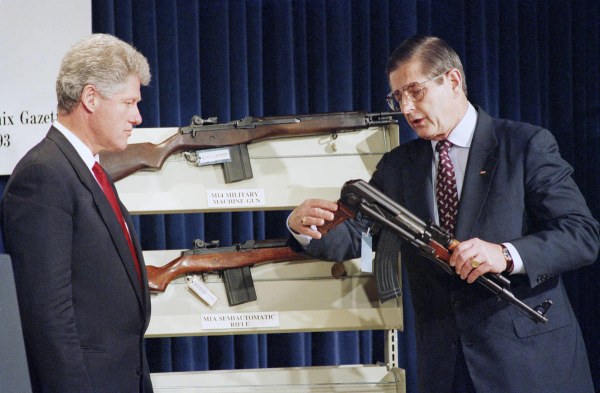
Needs Society’s Support, To Be Sensible; “Assault Weapons” Ban
Demonstrating that a ban has to have overwhelming social support to work and it has to be sensible, is the contemporary desire to either ban certain guns, or all of them. America tried this from 1994 to 2004 with President Bill Clinton’s Federal Assault Weapon Ban which had little to no effect, so Congress let it die. Too large a section of the population felt that if you take a gun away, someone will use a car, knife or explosives and mass killings – one of the primary reasons for anti-gun or gun-control advocates to institute some sort of ban on “assault [sic] weapons.”
Multiple studies have shown that there is no correlation between gun ownership and crime. The places that have the toughest gun laws or where they are outright banned still have gun deaths and mass killings, e.g. Brazil, Mexico, El Salvador, Chile, et al.
Inversely, countries like Switzerland which almost every citizen owns one or more guns has some of the lowest gun death rates and mass killings. A deviant, criminal mind has no care about laws in place and a decent, morally upright society doesn’t need gun laws to tell them it’s wrong to use them for evil. Take their guns away they’ll use knives like in Britain.
Perhaps most important of all is that calling for a ban will not work if it will not actually eliminate the behavior that is related to it. In other words, will banning or eliminating guns eliminate suicides, homicides, and mass killings? The answer is no – people will continue to commit suicide, murder people, commit mass killings and if you also restrict the magazine capacity people will simply choose another tool or method to achieve their end goal.
Certainly, inanimate objects have no mind of their own and require a user and this commonsensical stance is one of the biggest reasons why gun bans and heavy gun control laws struggle in America today, will continue to struggle and why guns will not be going anywhere even if you take all the guns away from the law-abiding populace.
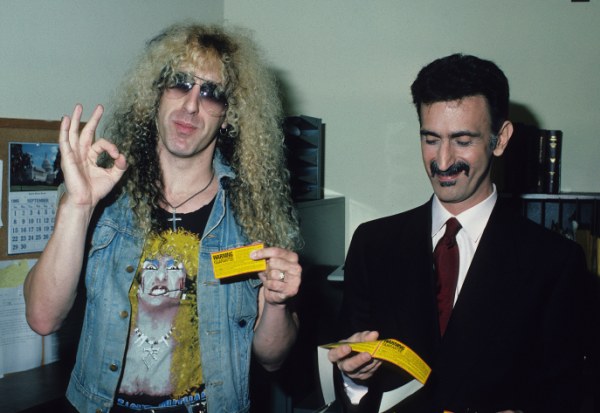
Backfires, Streisand Effects, Tipper Gore and the PMRC
Which brings up another very salient point about bans or even simply bringing them up: they often backfire. One aspect of this backfiring is colloquially referred to as the Streisand Effect. “…the phenomenon whereby an attempt to hide or remove a piece of information has the unintended consequence of publicizing the information more widely, usually facilitated by the Internet. The term is a modern expression of the older phenomenon that banning or censoring something often makes that item or information more desirable, and leads to it being actively sought out to a greater extent than it would have otherwise been.” – Wikipedia
Remember when Tipper Gore and the PMRC tried their darndest to get censor certain artists or albums in the 80s? If your memory is faulty or perhaps you are a lot younger, every artist hoped they could get that sticker because it was guaranteed to boost your albums sales. Royal backfire.
China, India, many European nations have banned or heavily taxed plastic bags, yet it’s done virtually nothing to eliminate these street tumbleweeds from being everywhere in these nations and has backfired. China’s ban on their importing them along with other plastics has had global consequences. From the journal “Science Advances“: “….studies [show] that only 9 percent of all plastic ever produced has been recycled, and the majority of it ends up in landfills or the natural environment. About 111 million metric tons of plastic waste is going to be displaced because of the import ban through 2030, so we’re going to have to develop more robust recycling programs domestically and rethink the use and design of plastic products if we want to deal with this waste responsibly.”
The Smithsonian said “China’s ban on importing foreign plastic could cripple global recycling programs and lead to 111 million tons of homeless plastic.” The ban is causing ripples in the U.S. recycling industry and is one we know all too well here in New Bedford with all the recent drama we’ve had between the city and ABC Disposal.
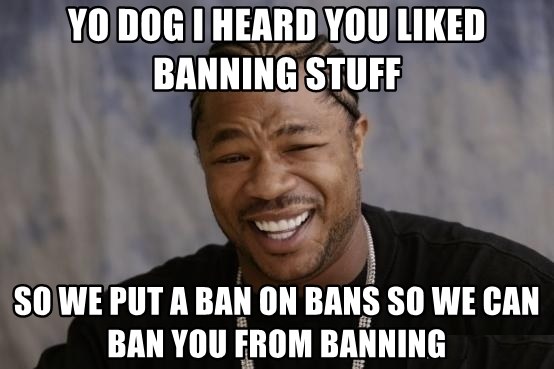
War On Drugs, How A Ban CAN Work, Portugal’s Progessive Example
A ban that has been going on for decades that has little to no effect in actually working is the ban on drugs here in America – called the “War On Drugs.” After spending tens of billions of dollars on the so-called war, have we made any headway? Nope. Still costing tens of billions of dollars a year, drugs are still being produced and manufactured in record numbers, and there is certainly no slowing down.
The problems with most bans is that the responsibility for being a decent, law-abiding person or cleaning up some segment of society is passed to someone agency or someone else in society. It’s the passing of the proverbial buck to avoid having to take responsibility for the actual behavioral issue at hand.
Often, there is a cognitive dissonance or blindness due to social mores of the Zeitgeist that prohibit many people from actually stating what the actual causes are so they can really be addressed. You can put a square tire on a car and making a stronger engine or more powerful fuel won’t ever make those tires make sense, be practical or efficient. You must address the shape of the tire, it can’t be ignored.
This is what Portugal did when instead of seeing drug use as a criminal issue and maintaining a ban on it, they saw drug use as a public health issue and decriminalized the possession of drugs in 2001. What were the consequences of that genuinely progressive – not paying lip service to the term, but actually thinking progressively instead of “Ban, ban, ban!!”?
They went from a nation that had one of the European Union’s (comprised of 28 nations) highest addiction and overdose rates and drug-related AIDS deaths and to now having a death rate that is five times lower than the other 27 nations, a drastic reduction in overdoses, spread of infectious diseases, and a host of other positives. You can see a full report and “magic” that Portugal worked with it’s progressive idea here.
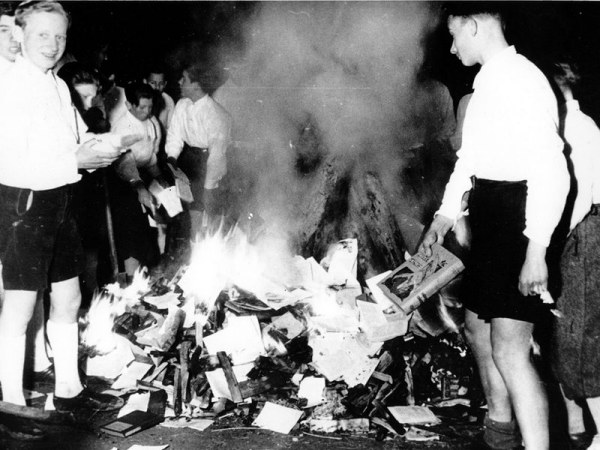
Scandinavia’s Penal System
Taking Portugal’s progressive idea even further are the Scandinavian nations who have created “No security” prisons for select criminals, instead of banishing prisoners using America’s “Get them out of my sight.” mentality. A mentality that comes with an absurdly high recidivism rate and turns mediocre criminal minds into very efficient, better criminals before unleashing them back into society. That means we are increasing our own danger.
“No security” means no fencing, no gates locking you in, no guards to stop you from leaving. While inmates are there, they receive training and skills: they learn language and social skills, anger management, meet with outside experts in a variety of fields, rehabilitation, drug treatment, etc. In addition, they have free access to sports and exercise, a library, computers, a community kitchen, and a bunch of other perks. The recidivism rate is like America’s….just in the opposite direction and society benefits.
Instead of taking a simple, outdated, lazy, and archaic idea like just banning something so it will go away, what is needed are more progressive ideas and discussions that revolve around solutions. There’s nothing wrong with wanting something to go away, but what is wrong is thinking that banning solves the problem. It simply allows the problem to persist, alienates large swaths of the population, and simply doesn’t work without majority agreement on the specifics of the ban or control.
Like Portugal has demonstrated, an honest discussion on a ban must include the possibility that perhaps a ban is not what is needed. The problem with all the ban talk that is so popular these days in America is that people are stifling, preventing, shaming, boycotting and censoring anyone and everyone that just wants to have a discussion about solutions.
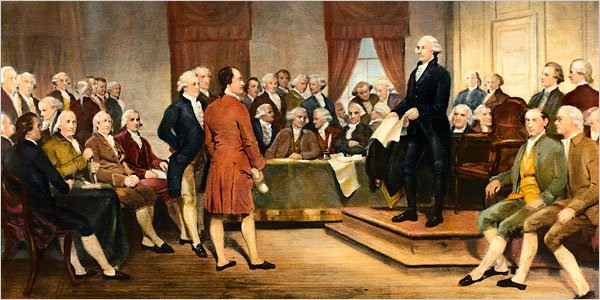
The sad part is that the censoring of the “opposing” party is actually censoring an ally because the person they are shaming, censoring or hushing wants the same thing and is just coming at it from a different angle. When you take the stance “I know what is best and don’t need anyone else’s opinion.” you tell a massive segment of the population that you don’t give a rat’s a** what they think and that they are unimportant. That’s exactly how fascism works, not America.
Together we can come up effective solutions to society’s issues. Separated we’ll just stagnate and paralyze ourselves. If one side is allowed to ban what it dislikes without considering the rest of America, fascism rules. Society has behavioral problems and solving the problems in society begins with honest, open, civil discussion between all sides, by fellow Americans, by us.
Honest, open, civil discussion…does anyone remember that?